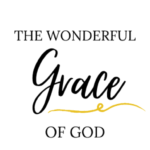[ad_1]
It inevitably happens a few times a year. A priest gets up to tackle a healing text or a passage full of demons, and now they are faced with a challenge. Is that story really about demons, or is it time to consider a psychiatric disability or a neurological condition like epilepsy? What is the significance of Jesus healing the blind man? How do we talk about these stories without harming our disabled community members?
Faced with stories that feature apparent disability, many people will tie themselves up in knots. They search for other words — “differently abled,” “special needs” — because somewhere along the way they learned that disability was a dirty word.
But it’s time to let that go.
A Changing Landscape
It’s true that not so long ago, it was considered improper to call someone disabled and even worse to say they were a disabled person; the right way to talk about such differences was “person with a disability.” The last few decades, however, have seen rapidly changing norms as more disabled people have gained public platforms and made our preferences known. The conclusion? Most of us wish you would just say “disabled.”
Disability is a fact of embodiment. For many, it is an identity and, of course, a daily lived reality. Most importantly, our disabled bodyminds are a reflection of God’s image. Naming disability is an imago Dei issue.
Sensitive Subjects
Before I say any more about naming disability, I want to be clear that most disabled people know that the complicated word gymnastics people perform when faced with our differences come from a place of sensitivity. People are just trying to exercise care and prevent harm. We appreciate that, really. But these attempts to avoid saying the word “disabled” also tell us that you aren’t engaged with disability advocacy the same way you may be “doing the work” around other diversity and equity issues.
I am an ADA baby, born the same year the Americans with Disabilities Act was signed into law, and most of my life has been shaped by experiences of disability. My father was diagnosed with multiple sclerosis when I was six years old. I grew up with undiagnosed autism and a connective tissue disorder that has resulted in numerous health issues. These experiences have helped me to see the limits of the ADA clearly. More importantly, they have made me acutely aware of the spoken and unspoken messages that the church sends about disability.
From Words to Actions
One clear manifestation of how our church communities address issues of access and inclusion is the presence—or, more often, absence—of ramps. In conversations about access, ramps are low hanging fruit. People understand their function, and they’re fairly inexpensive to add to a space. These days, you can even purchase portable metal ramps on Amazon!
Despite how simple it would be to ramp various church spaces, I have attended only two churches over the years that included ramps up to the chancel, and only one of those would allow a wheelchair user to maneuver behind the altar. The lack of ramps creates a barrier to ministry and communicates an implicit message about who leads in this space. It excludes a wheelchair user from accessing the lectern to read the lessons. It bars a child who uses a wheelchair from having a place on the stage in the Christmas nativity alongside their peers. It completely overlooks a priest who uses a wheelchair. These exclusions don’t even consider the ways ramps benefit people with other mobility disabilities or parents with sleeping babies in strollers. Inclusive design has a wide-reaching impact.
Conclusion
Changing the way we talk about important issues can be a challenge for all of us. We develop habits that can be hard to break. Still, we have a chance to take better care of each other, and that starts with listening carefully to those on the margins. We were made in God’s image, our disabilities included, so learn to say it aloud: disabled. It’s not a dirty word.
Featured image is by Duskfall Crew on Unsplash
[ad_2]
Source link







You must be logged in to post a comment.